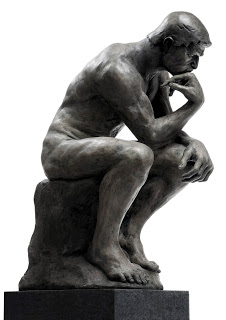So many people, far too many people, are convinced that belief is truth; belief is the same thing as fact. Nothing could be further from the truth. For centuries, most people believed that the earth was flat; the sun circled the earth. I am saddened by the fact that many people’s hard-held beliefs defy fact and reality, and too often with dire consequences.
To the horrific discredit of humankind, many Nazis believed that all Jews should be eliminated. Pastor Anderson in Tempe, Arizona, believes that all homosexuals should be executed, supposedly because the Bible says so. Some beliefs can be shocking and deadly.
Very often, people thoughtlessly quote the hackneyed expression, “Everyone is entitled to their own beliefs.” In addition to that quotation being bad grammar, I logically disagree with the statement. If a belief is false and can cause harm to others, I feel then that one is not entitled to harbor that belief.
Yet, we daily hear evidence that so many people hold false beliefs; and, in doing so, they cause among the populace suspicion, fear, distrust, disdain, hate. For example, “President Obama is not American; his birth certificate is forged; he hates America; all the generals and admirals are quitting because they are refusing Obama’s orders to bomb our own cities.” I view such beliefs as nothing less than insanity. For the life of me, I can not understand the depth and pervasiveness of such insanity. Yet, exist is does, and in abundance.
The idea of belief in religion also raises questions in my own mind, albeit anyone questioning religion at all is an anathema to many people. I have heard Christians say that the world is a better place with religion and point to, what they refer to as, “good works” as an immediate benefit of religion, let alone supposedly having an “afterlife.” A rational person, of course, will point out that good works can be performed without the adjunct of religion, regardless of the fact that many people, such a Bill O’Reilly, claim that such humanitarian works “do not count” unless the good Samaritan is a “person of faith.” Far worse, we all are aware that, throughout history, some religious beliefs have resulted in millions of deaths from war, Inquisitions, and terror.
My whole life, I have pondered the human mind. On one hand, I am amazed by the great, creative works some notable people have contributed to the world. Yet at the same time, I remain puzzled and saddened by the pervasiveness of distorted thinking and beliefs that are so common among the populace. Without being too technical, I am aware that researches have found that some people’s brains are more prone to clutching onto beliefs for a sense of certainty and safety, rather than rationally exploring all the facts available to them. Then of course, much depends upon what one has learned and how it was learned. I frequently have witnessed religiosity-minded people becoming defensive and hostile when confronted with facts that call into question their hard-held beliefs.
All of us, to one degree or another, have beliefs that we wish to maintain. I, for one, believe that the world would be a far better place if every person cherished life, always treated each other with empathy and respect, learned to love each other. Yet, I actually have been confronted with people who have stated to me that they do not share such beliefs.
I also believe in the benefit of moral behavior. For example, I believe that American politics would be far more constructive and tolerable if all concerned acted in a moral fashion without misrepresentation, lying, denigration, character-assassination, and even theft of elections or actual assassination. Yet, I have had conversations with several religiosity-minded people who literally do not comprehend the concept that I am proposing. They believe that only winning is important and that whatever machinations are required to do so are perfectly OK. My belief in morality is not shared by them.
On a lighter note, I can think of a belief that I have held that turned out to be true even without my initially having all the facts. For some time, I held a belief, based upon experience and some research, that not all music is of equal quality, that some music is healthful and, what I call, “pro-human,” whereas some aural experiences, called “music,” are toxic to humans and animals. Some people, aware of my belief, dismissed it with disdain, claiming that my belief had no factual basis. They claimed that all music is of equal quality and that what one listens to simply is a matter of taste and preference. Then to my surprise and, I admit, my satisfaction, recent scientific research with both humans and animals has supported my early belief, and definitively so.
So, sometimes beliefs can be accurate, even without all the supporting evidence that we would prefer to have. I should hasten to say, however, this may be true, but within reason. I still feel that I reasonably can dismiss the belief that President Obama ordered our generals to bomb our cities. So, when we talk about believing something, we really should be rational and accurately know what we are talking about. Do I believe that all humans eventually will think and behave in this manner? Not really. But as for myself, I make an effort.
© 7 January 2016
About the Author
I have had a life-long fascination with people and their life stories. I also realize that, although my own life has not brought me particular fame or fortune, I too have had some noteworthy experiences and, at times, unusual ones. Since I joined this Story Time group, I have derived pleasure and satisfaction participating in the group. I do put some thought and effort into my stories, and I hope that you find them interesting.



